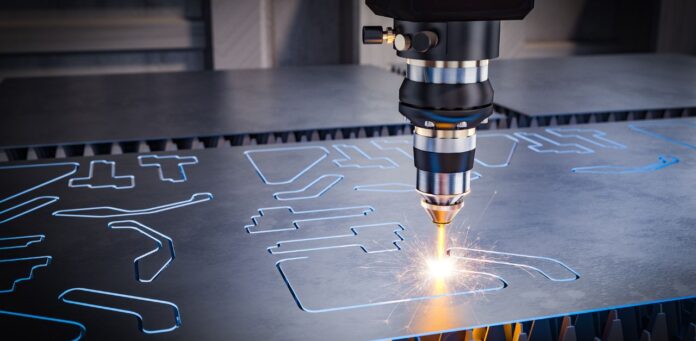The industrial machinery/components industry is a vital part of the global economy, responsible for manufacturing the machines and components that power our world. From the food we eat to the cars we drive, industrial machinery and components make the products we use every day possible.
As a result, the industrial machinery/components industry is a thriving industry with plentiful job opportunities. The employment of workers in the industrial machinery and components manufacturing sector is projected to grow 14% from 2020 to 2030, much faster than the average for all occupations.
Many different types of jobs are available in the industrial machinery/components industry, from entry-level positions to highly skilled engineering and management roles.
This article will discuss how many jobs are available in industrial machinery.
Let’s discuss the details of this topic.
What are Industrial Machinery Jobs?
Industrial machinery jobs involve designing, manufacturing, installing, maintaining, and repairing industrial machinery and components. Industrial machinery is used in various industries, including manufacturing, construction, agriculture, and transportation.
Types of Industrial Machinery Jobs
There are many different types of industrial machinery jobs available, including:
Mechanical Engineers
Mechanical engineers play a crucial role in the industrial machinery sector. They design, analyze, and maintain mechanical systems, ensuring machinery operates efficiently and safely.
They often work closely with other engineering disciplines to devise comprehensive solutions for complex machinery problems. Their in-depth knowledge of mechanics, thermodynamics, and materials science enables them to solve issues that can hinder the productivity of an industry.
Electrical Engineers
Electrical engineers are responsible for designing, developing, and testing electrical equipment and systems within the industrial machinery sector. They work on various components, from small circuits to large power generators.
Electrical engineers also troubleshoot and fix electrical faults, ensuring machinery operates optimally and safely.
Industrial Engineers
Industrial engineers streamline the operations of industrial machinery. They develop efficient systems that integrate workers, machines, materials, information, and energy to make a product or provide a service.
Their goal is to eliminate waste in production processes, increasing productivity and reducing costs.
Machinists
Machinists manufacture and assemble various parts of industrial machinery. They read blueprints, set up, operate, and maintain machine tools, and monitor the output for quality. Machinists play a pivotal role in maintaining the operational efficiency of industrial machinery.
Welders
Welders use heat to join metal parts, playing a vital role in the construction and maintenance of industrial machinery.
They must have a strong understanding of the properties of different metals and safety regulations. Their skills are critical to the longevity and reliability of industrial machinery.
Assemblers
Assemblers are responsible for putting together components of industrial machinery. They read and interpret assembly diagrams, position parts, and use tools to fit components together. Assemblers require keen attention to detail to ensure all parts fit correctly and machinery functions properly.
Quality Control Inspectors
Quality control inspectors examine materials and finished products for defects, ensuring that industrial machinery meets specified standards.
They use various methods, including visual inspections and advanced testing tools, to guarantee the quality and safety of machinery.
Sales Representatives
Sales representatives in the industrial machinery sector connect manufacturers with potential customers. They need a solid understanding of the machinery they sell to effectively communicate its benefits and features to clients. Their role is critical in driving revenue growth for their company.
Customer Service Representatives
Customer service representatives handle inquiries and complaints from customers regarding industrial machinery. They provide technical support, process orders, and communicate with customers about product details and delivery information. Their role is crucial in maintaining customer satisfaction and loyalty.
Marketing Professionals
Marketing professionals in the industrial machinery sector develop strategies to promote machinery to potential customers. They conduct market research, create advertising campaigns, and manage social media platforms.
Their efforts are crucial in increasing brand awareness and attracting new customers.
Management Professionals
Management professionals oversee operations in the industrial machinery sector. They plan, direct, and coordinate activities, set goals, and make crucial decisions that affect the organization’s direction. Their leadership is essential for the success and growth of the company.

Benefits of Industrial Machinery Jobs
Industrial machinery jobs offer several benefits, including:
High Demand For Workers
The industrial machinery industry is growing rapidly, with a high demand for skilled workers. This means that you are likely to find a job relatively easily, and you will have the opportunity to advance your career quickly.
Good Salaries And Benefits
The industrial machinery industry offers good salaries and benefits to its employees. Many companies offer competitive salaries, health insurance, paid time off, and retirement benefits.
Job Security
The industrial machinery industry is relatively stable, and jobs in this industry are generally considered to be secure. This is because this industry’s products and services are essential to the global economy.
Opportunities For Advancement
The industrial machinery industry offers many opportunities for advancement. If you are willing to work hard and learn new skills, you can quickly move up the ranks and into more senior positions.
In addition to these general benefits, industrial machinery jobs can also offer other advantages, such as:
- Industrial machinery jobs can involve various tasks, from designing and manufacturing new equipment to maintaining and repairing existing equipment. This variety can help to keep your work interesting and challenging.
- Working with industrial machinery can give you a sense of accomplishment when you see the products or services you are helping to create.
- Industrial machinery is used in various industries, from manufacturing to healthcare. This means that your work could have a positive impact on the lives of many people.
If you are interested in a career in the industrial machinery industry, there are a few things you can do to prepare yourself. First, you should consider getting an engineering, technology, or business degree. You can also gain valuable experience by completing internships or apprenticeships in the industry.
You can start your job search once you have the necessary education and experience. There are many ways to find a job in the industrial machinery industry. You can search for jobs online, network with people in the industry, or contact companies directly.
No matter how you find a job in the industrial machinery industry, many opportunities are available. With the right skills and experience, you can have a successful and rewarding career in this industry.
How To Prepare For A Career In Industrial Machinery
To prepare for a career in the industrial machinery industry, you can:
Get a degree in engineering, technology, or business. A degree in a related field will give you the knowledge and skills you need to be successful in the industrial machinery industry. Some specific degrees that may be helpful include:
- Mechanical engineering
- Electrical engineering
- Industrial engineering
- Manufacturing engineering
- Business administration
Gain experience through internships or apprenticeships. Internships and apprenticeships can give you valuable hands-on experience working in the industrial machinery industry. This experience can help you learn about the industry’s different aspects and develop the skills you need to succeed.
How to Find a Job in Industrial Machinery
If you’re interested in finding a job in the industrial machinery sector, here are some strategies that could prove helpful:
- Online Job Search: Websites like Indeed, ZipRecruiter, and CareerCloud often list job opportunities in the industrial machinery industry. They provide a platform for employers to post job vacancies and for job seekers to apply directly.
- Networking: Networking can be an effective way to learn about job opportunities. Attend industry events, join online forums, or participate in LinkedIn groups related to industrial machinery to connect with professionals in the field.
- Direct Contact: Don’t hesitate to contact companies directly. If you’re interested in working for a specific company, contact their HR department or use their website’s “careers” section to see if they have any openings.
- Career Advisors: Websites like CareerOneStop offer occupation profiles for different roles within the industrial machinery industry. These profiles can give you a better idea of certain jobs and help you decide which ones might be a good fit for you.
- Education and Training: According to the Bureau of Labor Statistics, industrial machinery mechanics typically need a high school diploma. Depending on the role you’re interested in, you may also need additional qualifications or on-the-job training. Some jobs may require a degree or certification, so consider your educational options carefully.
Conclusion: How Many Jobs Are Available In Industrial Machinery
There are a significant number of jobs available in the industrial machinery sector. The exact number can vary depending on the specific role and the data source, but it’s clear that opportunities abound in this field.
According to Indeed, specific numbers exist for certain roles, such as 129,480 job roles for team assemblers. Zippia reports that over 2.1 million jobs are available in industrial machinery/components in the United States, from technician roles to engineering management.
Further breakdown of the job availability is provided by Kamerpower, indicating that there are 332,000+ jobs for machinists, 96,000+ jobs for continuous improvement engineers, 122,000+ jobs for industrial engineers, and 140,000+ jobs for mechanical engineers.
The Bureau of Labor Statistics reported that there were 1.3 million industrial machinery and components manufacturing jobs.
As per Rick Orford’s website, as of September 2023, more than 56,300 jobs are available in industrial machinery components, and this number is projected to grow by 19 percent by 20305.
These statistics show ample opportunities in the industrial machinery sector across various roles. Whether you’re an assembler, welder, engineer, or mechanic, there’s likely a job for you.


